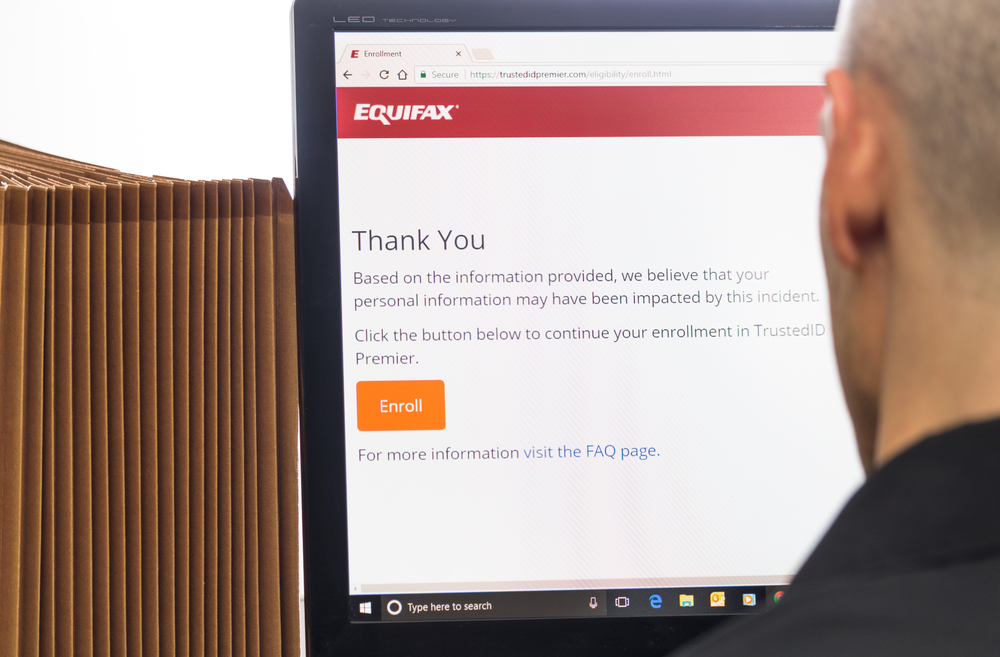Victoza, the brand name of the drug Liraglutide, is an injectable medication for the treatment of Type 2 diabetes. It is known as part of a group of drugs called incretin mimetics, which act as a hormone to regulate the production of insulin from the pancreas.
Incretin mimetics were developed in the early 2000s and Victoza was given FDA approval in 2010. In 2018, its creators, Novo Nordisk, made nearly three billion dollars in sales. In 2021, the patent will expire on Victoza and a generic version of the drug will hit the market, while in June of this year, it was approved for use on teenagers.
Soon after the release of Victoza, concerns arose over the increase of pancreatic and thyroid cancers among patients who used incretin mimetics. Studies showed that these drugs greatly increased the chance of developing acute pancreatitis, the most important factor in the development of cancer. Animal studies showed a direct link between incretin mimetics and thyroid cancer. Despite these revelations, Novo Nordisk has refused to change the labeling on their medication. In 2017 they were fined for engaging in illegal practices to convince doctors to prescribe without warning patients of the risks involved.
There are currently hundreds of cases against Novo Nordisk and other manufacturers of Victoza, as well as the medications Januvia, Byetta, and Janumet. If you or a loved one has developed cancer, kidney failure, or chronic pancreatitis since being prescribed one of these drugs, you may be eligible for compensation. Please contact us using the form below for a free consultation, or continue reading to learn more about Victoza, the legal responsibility Novo Nordisk has towards its patients, the potential financial compensation available, and how we can help you.
Why Are Victoza Lawsuits Warranted
Like many lawsuits that involve medication, the claims against the makers of Victoza are simple:
- Novo Nordisk, the creators, produced a drug that had severe side effects, including an increased chance of developing pancreatic and thyroid cancer, as well as kidney disease and pancreatitis.
- Novo Nordisk failed to inform patients and doctors of these risks and did not include appropriate warnings on its labels.
- Because of these failures, many patients now suffer fatal diseases they may have been able to avoid.
Lawsuits such as these can claim damages not only for the medical costs of the plaintiff, but their ongoing medical costs, their loss of income, and the pain and suffering to both themselves and their family. People who have lost loved ones because of these circumstances also have a right to be compensated for damages.
How Do I Know if I Qualify to Be a Part of a Victoza Class Action Lawsuit?
If you or a loved one was taking Victoza, or any other drug known as an incretin mimetic (including Januvia, Byetta, and Janumet), before 2005 and later developed pancreatic or thyroid cancer, it is important to speak to a lawyer about your eligibility to seek damages. This may be as an individual or part of a class-action lawsuit.
By filling out our form, you can have a lawyer reach out to you, free of charge, to discuss your circumstances and help you understand your options.
A History of Victoza Lawsuits
Lawsuits against Novo Nordisk and other manufacturers of incretin mimetics are currently running, with no judgments for or against the plaintiffs. The most important case, Multidistrict Litigation 2452, is in the middle of hearings as of late 2020.
FDA Approval and Warnings
In April 2010, the United States Food and Drug Administration (FDA) approved the drug Liraglutide, under its brand name Victoza, for use with people suffering from type 2 diabetes. Included in the approval was the warning that trials showed an increase in pancreatitis among those who used the medication, but no mention was given to pancreatic cancer. In its approval, the FDA decided that no further testing would be required, despite not knowing the human risks associated with the increased pancreatitis, and despite knowing that lab tests suggested a possible link to thyroid cancers as well.
In 2013, the FDA announced that it was looking into findings that incretin mimetic drugs, such as Victoza, caused a marked increase in pancreatic cancers. In 2014, the FDA decided that, while it agreed with the John Hopkins study that conclusively linked these medications to acute pancreatitis, that there was not enough evidence to show the same link between them and pancreatic cancers. This despite not disputing that pancreatitis is the number one risk factor for developing pancreatic cancers.
In 2012, the Public Citizen’s Health Research Group petitioned the FDA to ban all incretin mimetic drugs until further studies had been conducted and continue fighting for further studies.
As of 2020, the FDA still does not require packaging of Victoza to mention the increase in pancreatic cancers among those who take incretin medications.
US Department of Justice 2017
To resolve allegations that the company was involved in kickbacks and other FDA violations in marketing Victoza, Novo Nordisk was ordered to pay the US government $58.65 Million. According to FBI’s Assistant Director of the Washington Field Office, Andrew Vale, “Novo Nordisk Inc. sales representatives misled physicians by failing to accurately disclose a potential life-threatening side effect of a prescription drug, and needlessly increased risks to patients being treated with this drug.”
Multidistrict Litigation 2452 IN RE: INCRETIN-BASED THERAPIES PRODUCTS LIABILITY LITIGATION
By the middle of 2013, dozens of cases had been filed against Novo Nordisk and other drug manufacturers by patients who had been prescribed the drug and then developed pancreatic cancer, chronic pancreatitis, and other long-term illnesses. In August of that year, the courts combined 53 of these cases from Arizona, California, Colorado, and four other states to form the Multidistrict Litigation No 2452.
A Multidistrict Litigation, or MDL, is similar to a class-action lawsuit, in that lawyers and plaintiffs work together to pool their resources to better fight against large companies. However, they also recognize that one plaintiff may have a different experience to another, requiring greater damages for medical fees, or have more evidence of wrongdoing by the company.
MDL 2452 is being held in the Southern District of California and is currently running.
In 2015, District Judge Anthony Battaglia granted the companies’ request to dismiss all cases, based on an argument of “preemption”; that if the FDA did not ask for a label to be changed, then the company could not be held legally accountable for not changing the label. This judgment was overruled on appeal in 2017. The appeals court also recognized that the plaintiff’s expert testimony should have been allowed. Due to these rulings, the case is ongoing.
In Novo Nordisk’s own 2018 Financial Report, the company stated that “As of 29 October 2018, 282 plaintiffs have named Novo Nordisk in product liability lawsuits,” while hundreds of other plaintiffs are part of the MDL against other companies.
How Does a Victoza Lawsuit Work?
If your lawyer believes there is an appropriate amount of evidence that you have suffered as a result of taking Victoza, they may decide to take your case to court or approach other cases to form a class action lawsuit. In civil matters, lawyers tend to work “on contingency.” This means they will ask for no up-front fees and only take payment if they can get you damages in the form of a judgment or settlement with the drug companies. This means you do not need money to get good representation.
While it may be appropriate to seek damages as a single complainant, many lawyers look to join class actions or Multidistrict Litigations (MDLs) so they may pool resources. This is important, as you will be going against large multi-national companies that will spend millions of dollars to try and prevent justice.
Court cases of this nature are complex and require many steps. Your lawyer will need to appear in court many times, and you may be asked to appear as a witness. There will be a lot of paperwork. You need to be mentally prepared for a long and arduous process. While many cases against pharmaceuticals can take years, this is to ensure that you receive the very best chance to find justice for the suffering you have experienced.
Do I Need a Lawyer to Join an Abilify Lawsuit?
It is not strictly necessary to employ the services of a lawyer to start a suit against a pharmaceutical company. However, we highly recommend it. Lawyers have the knowledge and experience to respond to the constant challenges that the defense will put forward and know the processes and historical cases that have succeeded in ensuring these multinationals are held responsible. Class actions will require you to have representation to be a part of them.
Be assured, the defense will not just have a lawyer, but a fleet of lawyers to fight against your case. Some companies have spent millions of dollars to prevent being found responsible for their actions. Fill out our form to have a no-obligation, no-cost discussion with one of our passionate lawyers and discover how they can help you.
How Long Does It Take to Settle a Victoza Lawsuit?
Drug lawsuits can take years to settle, so if you decide to sue, you must be patient and steadfast. While we do not yet have precedent specifically for Victoza suits, recent lawsuits against companies around Pradaxa lasted three years before eventually settling for over half a billion dollars. The first major lawsuits against Novo Nordisk began in 2013 and are still being litigated.
As lawsuits take some time to complete, you will need to update your information as circumstances change, including letting your lawyer know about any new medical changes and costs to recover. During this time, you are likely to have to tell your story many times, and having a legal representative that cares about you can be a great support to your mental health during this period.
What Is the Statute of Limitations on a Victoza Lawsuit?
The “Statute of Limitations” is the amount of time you have to put forward a lawsuit that requests damages for a past event. In this case, the event would be your diagnosis, rather than when you were first prescribed Victoza.
The statute of limitations is different in each state and can range from as long as ten years to as short as one. This is why it is important to talk to a lawyer immediately about your story. They will ask you a number of questions about when you took the drug, when you first developed symptoms and when you were first diagnosed, as well as where you lived at each of these times.
Never assume the statute of limitations has passed for your case. Instead, assume that immediate action will let you seek damages. Contact our lawyers today by filling out the form beside this article, and they will be able to assess if you are still within the statute of limitations.
How Much Can You Get From a Victoza Lawsuit?
No civil case against companies producing incretin mimetics has reached the point of settlement, as it has only been recently that we have been able to seek justice. We do know that Novo Nordisk settled a $50 million case against the government for a range of offenses.
Previous cases in which medication has been found to cause cancer in patients have settled for amounts ranging from tens of thousands to millions of dollars. As each plaintiff has their own unique story, it is impossible to offer an estimate on what you may be entitled to. However, it is rare for a case to settle without covering at least the medical costs that the plaintiff has currently paid due to the disease caused by the drug.
How Long Does It Take to Get Your Money After You Settle a Lawsuit?
Regardless of it being a settlement or judgment, receiving the money afterward will not be an immediate event. Sometimes it may even take months before you personally see a cent. Because of the right to appeal, judgments may not necessarily be final, while settlements are contracts that must be carried out, most commonly in the form of financial damages.
The first step after any settlement is for the medical costs of any and all plaintiffs to be paid. These costs may already be calculated, but interacting with all the doctors, hospitals, and other health professionals can take time as each payment must be confirmed. After this, the remaining funds are sent to the primary law firm running the case. In a class action or Multidistrict Litigation, these funds then also need to be split between the lawyers of the individual plaintiffs. Remember, this is the first time your lawyer will have been paid for what could have been years of work.
The money your lawyer is paid is a percentage of the money you have personally won during the judgment/settlement and will have already been discussed when they took your case. As soon as they take their payment, they will send the rest of the money to you via electronic transfer or check. This step is the fastest part of the process and will happen within weeks.
What Is Victoza?
People with Type 2 (or Insulin-Resistant) Diabetes often do not have enough hormones that encourage the release of insulin by the pancreas. These hormones are known as “incretins.” “incretin mimetics” are a class of drug that mimics these hormones, helping the pancreas to produce and release insulin. These injectable drugs were developed in the early 2000s, and there are now nearly a dozen on the market. These incretin mimetics include Victoza, Januvia, Byetta, and Janumet. They all work via the same mechanism and therefore come with the same risks and problems.
What Is the Problem With Incretin Mimetics?
In 2013, the British Journal of Medicine (BMJ) provided a report that warned of the dangers of incretin mimetics, pointing to concerning tests in non-humans that pointed to an increase in thyroid cancers, as well as patient studies that suggested an increase in pancreatitis and pancreatic cancers. They also discovered that concerns surrounding such side effects were presented as early as 2007 and ignored by the companies creating these drugs.
In 2016, the FDA’s database of “adverse events” found that pancreatic cancers occurred in ten times as many people taking Januvia as those who did not. Januvia works exactly the same way as Victoza. Pancreatic cancer is one of the deadliest forms of cancer, with 90% of patients dying within five years of being diagnosed.
Cancer is not the only issue with incretin mimetics. Allergic reactions to incretin are more common than one would expect, and recent research has also shown concerning links to kidney disease. If you or a loved one have suffered any major illness that may be caused by Victoza, you should contact one of our lawyers using the form below to see if you may be eligible for damages.
Talk to a Legal Professional Today
If you or a loved one was prescribed Victoza, Januvia, Byetta, or Janumet and has since developed any form of cancer, kidney disease, or chronic pancreatitis, it is important to discuss with a lawyer if you are eligible for compensation. By contacting us, you can receive a no-obligation consultation about your rights and options.
Before making any decision regarding your medication and health, please speak to your doctor. Do not stop taking prescribed medication without first seeking advice.





